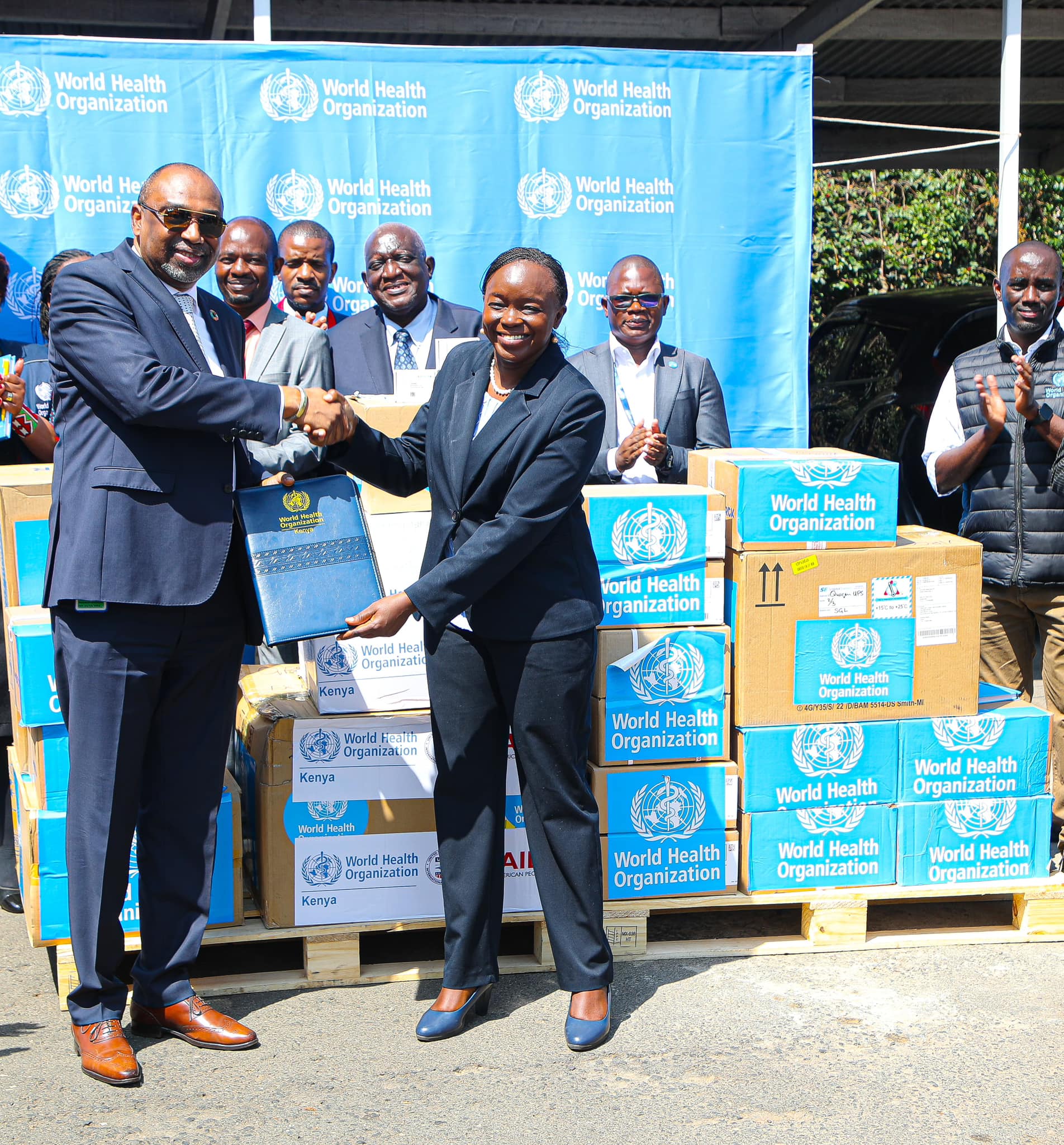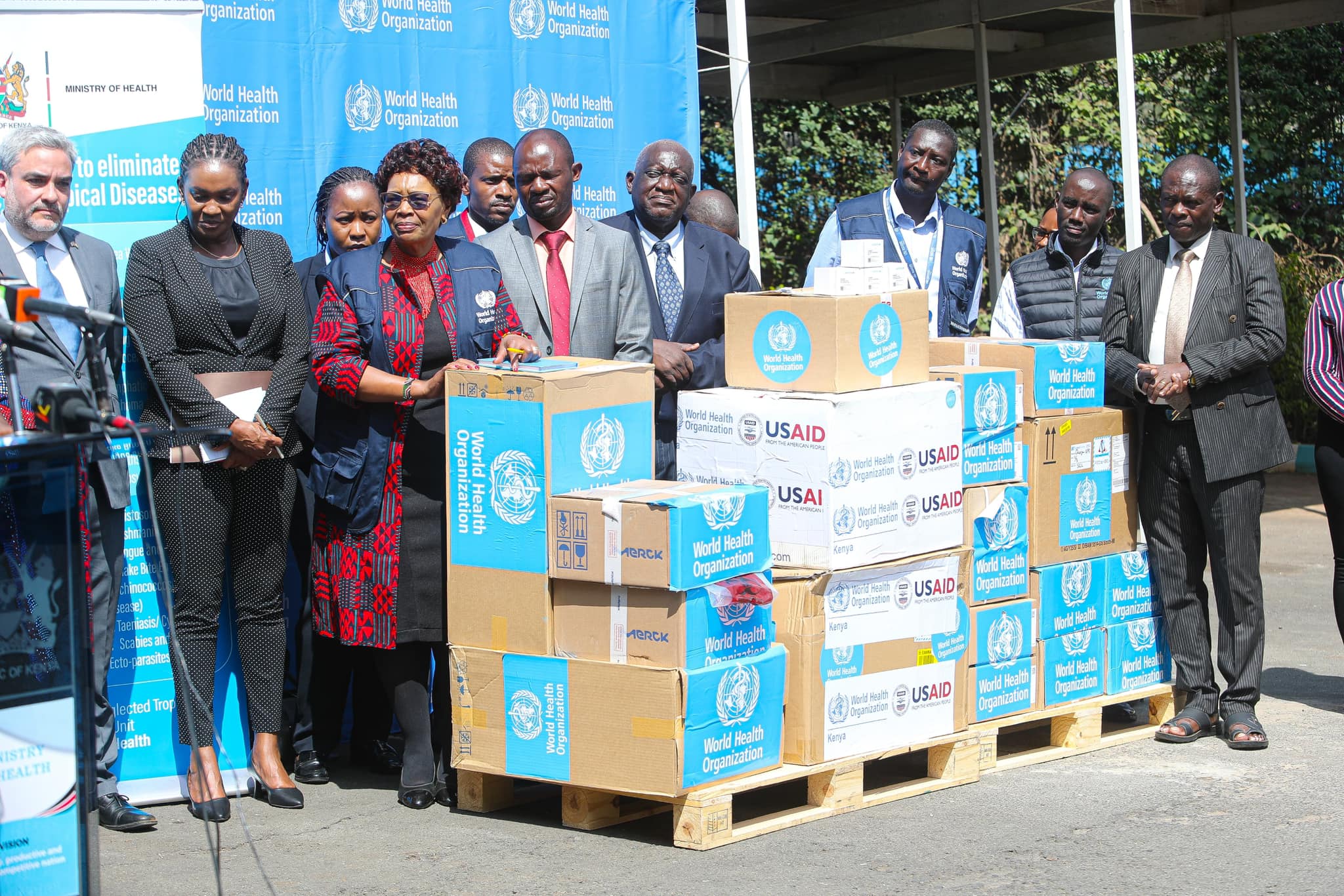
The country's fight against Neglected Tropical Diseases (NTDs) and Mpox virus has received a boost.
This is after the World Health Organisation donated medicines for NTDs and Mpox diagnostics to the Ministry of Health.
The WHO donated 15,215,000 tablets to support Kenya's fight against NTDs to help eliminate conditions like Schistosomiasis and Soil-Transmitted Helminthiases.
The donation worth Sh213 million worth of medicine is to be used for a mass drug administration later this month targeting over 15 million people in 15 counties.
According to the ministry, the focus will be on the Coastal region, Lake Victoria basin, and Western regions, where the burden of these diseases remains highest.

They include 7.8 million Mebendazole tablets, 7.2 million Praziquantel tablets, 444,000 Diethylcarbamazine Citrate tablets and 177,000 Albendazole tablets.
"These diseases predominantly affect the most vulnerable, often perpetuating cycles of poverty and suffering, especially in areas where Water, Sanitation, and Healthcare Services are limited," WHO Kenya country representative Abdourahmane Diallo said.
The global health agency also donated Mpox laboratory diagnostic kits aimed at strengthening the country’s capacity to respond to the ongoing Mpox outbreak.
The outbreak was officially declared on July 31, 2024.
The donations include 28 PCR diagnostic kits to aid in the testing of 2,688 suspected Mpox samples, 2,500 scalped blades, viral transport media and swabs for sample collection.

"These resources are aimed to strengthen Kenya’s capacity for rapid and accurate diagnosis, supporting timely interventions and containment of the virus," Diallo said.
According to WHO, over 1.3 million travellers have been screened across 26 points of entry into Kenya.
So far 238 samples have been tested in laboratories, and 13 cases have been confirmed across 10 counties in Kenya.
The WHO has also supported the ministry in developing a national Mpox preparedness and response plan that targets 14 high-risk counties as well as training 137 health workers and 555 airport staff on ways of combating the virus.
The United States Agency for International Development (USAID) has also allocated Sh64.5 million to WHO Kenya in a bid to strengthen the ministry's response to the ongoing Mpox outbreak.
Health CS Deborah Barasa said through the implementation of targeted interventions, including the deployment of preventive chemotherapy, Kenya has made remarkable strides against NTDs.
She said the mass drug administration (MDA) campaigns play a pivotal role in the fight by targeting at-risk communities and interrupting the cycle of disease transmission.
"These medicines will be put to immediate use in the upcoming cycle of MDA to address three endemic NTDs: lymphatic filariasis, soil-transmitted helminths, and schistosomiasis," Barasa said.

